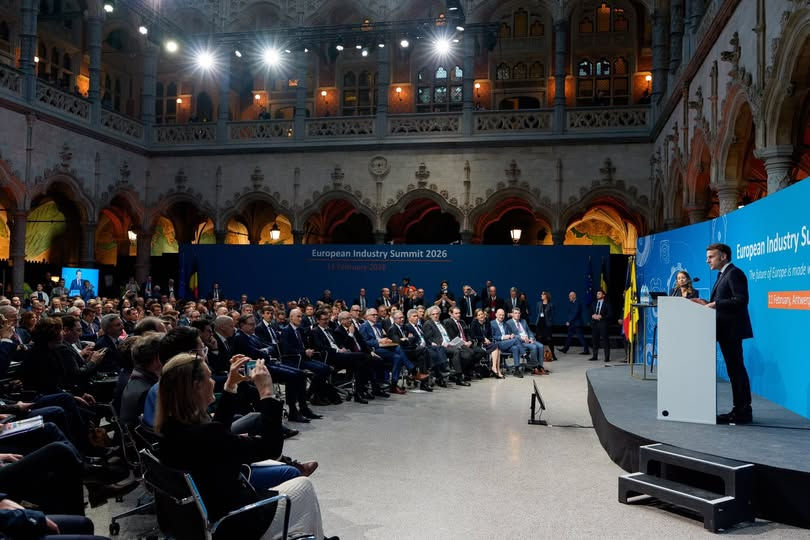Lee Jae-myung Becomes South Korea's New President Amidst Unprecedented Crisis
- Rahaman Hadisur

- Jun 7, 2025
- 3 min read
Hadisur Rahman, JadeTimes Staff
H. Rahman is a Jadetimes news reporter covering Asia

In a dramatic turn of events, Lee Jae-myung has officially taken office as South Korea's new president following a landslide electoral victory securing nearly 50% of the national vote. However, instead of enjoying the typical two-month transition period, Lee is stepping into leadership immediately to fill the power vacuum left by the recent impeachment of former president Yoon Suk Yeol.
Yoon, who was removed from office last December after his failed attempt to declare martial law, left the country in political turmoil. Lee, a former opposition leader and vocal advocate of democratic values, campaigned on the promise of restoring democratic order and healing a fractured nation.
What are we getting from this new leadership? Now we will discuss that.
For most leaders, an election victory brings a short political honeymoon. But for President Lee, that honeymoon is already over. The country is in the middle of an economic slowdown, geopolitical tension, and public mistrust in government institutions. His immediate focus? Managing an international standoff involving former U.S. President Donald Trump.
In April, Trump imposed 25% tariffs on all South Korean imports, despite the long-standing free trade agreement and military alliance between the two nations. These harsh economic measures have threatened to send South Korea’s already struggling economy into crisis. According to Moon Chung-in, a senior advisor to Lee’s Democratic Party, “These tariffs could trigger an economic collapse.”
Let’s look deeper into what Lee’s facing now.
South Korea’s economy, which was already constricted by the political chaos of the past six months, shrank in the first quarter of the year. Restoring economic stability has become the top priority for the new administration, even surpassing democratic reform in urgency.
But complicating the recovery is the security partnership with the U.S. At the heart of the issue is Trump’s growing demand for South Korea to pay more for American military protection. With 28,500 U.S. troops stationed in the country, South Korea relies heavily on the United States for defense against threats from North Korea.
Trump’s recent posts on his Truth Social platform suggest that he sees trade and military protection as a “one-stop shopping” deal further destabilizing the trust between the allies.
Caught Between Two Powers: The U.S. and China
This is what we’re getting to understand South Korea is now walking a tightrope.
Lee Jae-myung has signaled a more balanced foreign policy, calling for improved relations with China, South Korea’s biggest trading partner. During a recent debate, Lee said, “We must keep our distance from a China-Taiwan contingency. We can get along with both.”
But Washington’s strategic priorities have shifted. The U.S. now sees containing China as its top goal in Asia, potentially drawing South Korea into an unwanted confrontation. There are already discussions in Washington about redeploying troops stationed in South Korea to focus on Taiwan an idea that alarms Seoul.
“If the U.S. threatens us, we can let the troops go,” said Moon Chung-in, reflecting a growing sentiment of resistance against being dragged into great power rivalries.
And here’s where things get even more dangerous.
North Korea’s nuclear arsenal has grown significantly, and leader Kim Jong Un remains defiant. With Trump back in office, there are fears he may strike a deal with Kim that prioritizes American security over South Korea’s. Experts warn Trump might focus only on stopping intercontinental missiles aimed at the U.S., ignoring the short-range weapons pointed directly at Seoul.
“North Korea is in the driver’s seat now,” said Sydney Seiler, a former U.S. negotiator. “A partial troop withdrawal from South Korea isn’t far-fetched anymore.”
This could leave South Korea more vulnerable than ever militarily, diplomatically, and economically.
So what does this mean for South Korea’s future?
President Lee has taken office under extraordinary circumstances. He must navigate a precarious economic crisis, repair frayed diplomatic ties, and rebuild national unity after a chaotic six months of political unrest. All eyes are now on how he will handle Trump’s aggressive trade and defense postures while trying to stabilize the region and restore public faith in democracy.
Whether Lee can rise to the challenge remains to be seen but the path ahead is anything but easy.








































Comments